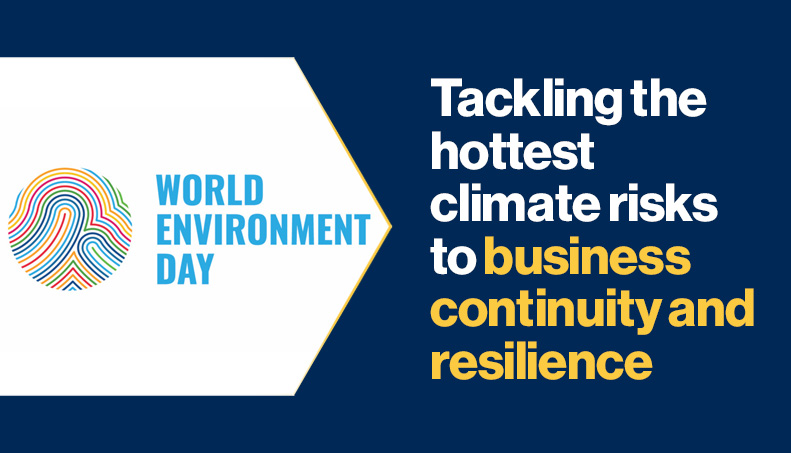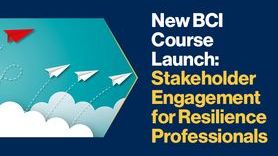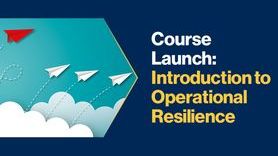World Environment Day: Tackling the hottest climate risks to business continuity and resilience

The United Nations’ (UN) World Environment Day 2024 is being held on June 5th and hosted by the Kingdom of Saudi Arabia. This year, its main themes are land restoration, desertification, and drought resilience.
This UN Environmental Program is a popular annual event that’s been held since 1973 to promote environmental outreach and raise awareness of issues surrounding the globe’s most pressing environmental risks. According to the official website, over a million people celebrate this day worldwide, with community involvement ranging from planting seeds, to dimming lights. This year’s theme continues that of 2021: #generationrestoration. This is specifically aimed at regenerating the countryside, reviving water sources, and bringing back farmable soils.
Severe environmental weather risks are an established concern in the resilience world. Many organizations plan for weather-related disruption such as snowfall impact on transportation, but climate risk is much more than that. It’s an evolving risk that merits revisiting on a regular basis. The BCI Extreme Weather & Climate Change Report 2023 told how 44.5% of survey participants were moderately or significantly impacted by climate-related events during the past five years, yet many still view such events as a one-off risk, don’t consider the long-term impact of climate risk disruption on their organizations, and fail to prepare plans accordingly.
Extreme weather doesn’t just impact infrastructure and buildings. As highlighted by the #generationrestoration theme, it also has an impact on food and farming. Extreme weather impacts food staples such as rice, wheat, and corn, so it has the potential to threaten global food security and disrupt supply chains. In turn, this creates reputational risk. Indeed, the BCI’s latest climate risk research indicates that the most frequently experienced disruption from weather-related events is to an organization’s supply chain.
As World Environment Day highlights the challenges that global climate events may bring, practitioners should look to move from watching briefs to actively assessing current and future weather impacts and implement practical climate resilience plans across their organizations. This includes infrastructure, staff safety, supply chain, and reputational disruptions. They should seek to partner with senior management to ensure their organization not only knows how to ensure critical activities continue in the event of an incident such as a flood, but also put plans in place to ensure the organization is better prepared for such incidences in the first place.
If climate change has affected your supply chain, or you believe it will in the future, consider contributing your experiences (the good, the bad, and the ugly) to our latest supply chain survey. This important survey will help uncover risks, threats, and good practice in supply chain resilience and support business continuity and resilience practitioners in the future.








































